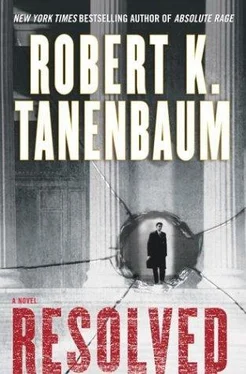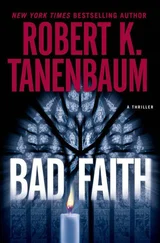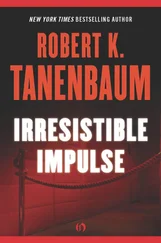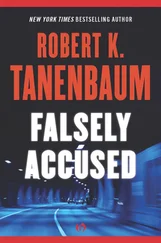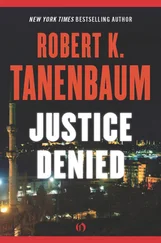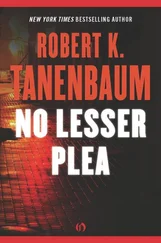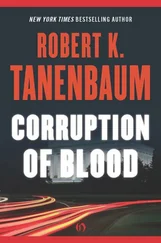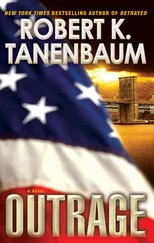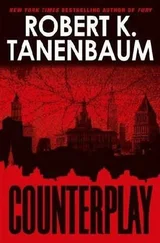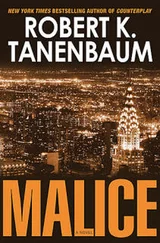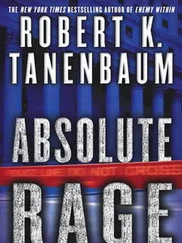Robert Tanenbaum - Resolved
Здесь есть возможность читать онлайн «Robert Tanenbaum - Resolved» весь текст электронной книги совершенно бесплатно (целиком полную версию без сокращений). В некоторых случаях можно слушать аудио, скачать через торрент в формате fb2 и присутствует краткое содержание. Жанр: Криминальный детектив, на английском языке. Описание произведения, (предисловие) а так же отзывы посетителей доступны на портале библиотеки ЛибКат.
- Название:Resolved
- Автор:
- Жанр:
- Год:неизвестен
- ISBN:нет данных
- Рейтинг книги:4 / 5. Голосов: 1
-
Избранное:Добавить в избранное
- Отзывы:
-
Ваша оценка:
- 80
- 1
- 2
- 3
- 4
- 5
Resolved: краткое содержание, описание и аннотация
Предлагаем к чтению аннотацию, описание, краткое содержание или предисловие (зависит от того, что написал сам автор книги «Resolved»). Если вы не нашли необходимую информацию о книге — напишите в комментариях, мы постараемся отыскать её.
Resolved — читать онлайн бесплатно полную книгу (весь текст) целиком
Ниже представлен текст книги, разбитый по страницам. Система сохранения места последней прочитанной страницы, позволяет с удобством читать онлайн бесплатно книгу «Resolved», без необходимости каждый раз заново искать на чём Вы остановились. Поставьте закладку, и сможете в любой момент перейти на страницу, на которой закончили чтение.
Интервал:
Закладка:
Collins and the People's case had nothing to say on the subject. Karp had made that decision early on, in the face of Keegan's broad hints and the rage of what seemed like a good two fifths of the city's population. Karp caught some eyes upon him, including some hard ones. He had the rep as someone insensitive to racial issues, a rep he shared with a recent mayor of the city. Karp had every right to be in the courtroom, to sit at the prosecution table if he wanted to, but he was turning heads now and he wanted all the heads to be turned toward Collins and the witness. He slipped out.
He knew what Touri was going to say anyway. That on a certain night six months ago, while standing outside the Club Balou on Greenwich Street, he had observed his friend, Moussa, being accosted by two men, the present defendants. That he had heard the two men try to buy dope from Moussa. That Moussa had grown angry, because Moussa was a good Muslim and didn't even use dope, much less sell it. That Moussa had pushed that man there, the defendant Nixon, and shouted abusive words and had engaged in a shoving scuffle with Nixon, and struck Nixon in the face with his fist. That the two men had then pulled pistols and shot Moussa dead. Thus the testimony of Bradley and three others was essentially the same. Against this was the defense's story, which was that the two undercover cops had identified themselves to Moussa as police officers and he had attacked Nixon physically. In the ensuing scuffle, Moussa had tried to grab Nixon's pistol, and that was when the shooting had begun.
None of the witnesses had seen or heard anything resembling this series of events. What Karp surmised was that the cops had made a simple mistake and compounded it into tragedy. They had picked the wrong guy, neither Gerber nor Nixon being experts at distinguishing among several Nigerians on darkened street corners, and when it had become perfectly clear that it was the wrong guy, since the right guy would have sold them dope if he hadn't made them or would have been cool if he had made them and been holding, neither of the two cops had possessed the sense to disengage, to stay in their tourist personae and drift off. Certainly there were plenty of actual dope deals going down along Greenwich Street that night. Instead, they had responded to the victim's outrage with outrage of their own, abandoned the rules of engagement set down in elaborate detail in the NYPD Patrol Guide, and blew the fellow away, using seven bullets from two guns to do it.
A stupid tragedy: that was what it actually was, Karp believed, but the law, that Great Ass, had no slot for stupid tragedy. Its only concern was culpability. Was the act criminous? The grand jury had determined that it was. Were the defendants culpable? That was what Collins and all of them were doing in there. Yes, they were, said the People. No, they weren't, said the counsel for the defense. Now, now, boys, said the judge, when necessary. It is as dignified and noble as a schoolyard punch-out, or the scuffle outside a mean little nightclub that had cost Moussa Onabajo his life.
Karp shook his head violently to clear it of these thoughts, unseemly ones for someone in his position, and drew a startled look from a passing clerk typist. Oh, great, he thought, now I'm twitching like a maniac in the courthouse halls. I'm going crazy, too. And this "too" his mind tossed up made him think of she to whom it referred, the one already crazy. This recollection hit him with the force of a blow, as it did several times in each day, and he paused at the door to his office and leaned heavily upon the doorknob to keep himself upright, to keep from falling to the floor and writhing in pain, howling. The spasm passed as always, leaving the perpetual dull ache, tinctured with resentment. Why did she have to be like that?
The monster in her lair. It is close, dank, fetid with the bones of her victims. In reality it is large, sunny, white-painted, a bedroom on the upper floor of a farmhouse near the shore on the north fork of Long Island. But what is reality? Marlene no longer knows. She lives alone now with a varying number of large fierce dogs and a dog trainer named Billy Ireland, with whom she is strenuously not having an affair, although she often wants to. Marlene has strong sexual desires, and a likely relief for them nearby and willing, but she denies herself this, and she denies herself also the solace of her children and her home. It's part of the punishment. Marlene is clever enough to organize a mass assassination and escape the grip of the law, but not clever enough to escape the guilt. She organized this crime to avenge an attack on her son Giancarlo. Giancarlo is blind as the result, or perhaps he is not blind at all. His vision tends to flick on and off, like an old bar sign. Her favorite child, the artist, blind: this was her thinking, and his brother, the twin, probably had murder down to his name at age eleven, although you couldn't tell what was going on inside him at all, you were lucky if you got three words a day out of him, Giancarlo does all the talking the two of them need. Maybe he's twisted inside there, that's her big fear, like Mom, thinks of nothing but guns, shooting, maybe we'll see him up on the tower one day, a sniper, one of those beautiful, smooth, deadly American boys. "The mother's fault" is what they always say, although in this case definitely true.
So, the deal is she has to stay away from the bunch of them, the boys to protect them from the Monster Mom, and far from Butch, to protect herself from that look he gives her without meaning to, a look of revulsion. No, she could take revulsion, it was her desert, after all; but he mixes it with the still-warm embers of love into an emotional slurry that she can't endure seeing. She doesn't have to avoid her daughter, because her daughter has removed herself from the maternal orbit. Or has she? She doesn't run away, she talks on the phone, but like a stranger, which is fine with Marlene, one less thing to strip off, although one would think that Lucy, of all people, would understand why she did it. Lucy has that rage, too, when the family is threatened, some kind of gene from Sicily? Although she has succeeded in keeping it under better control than her mother has. A real Catholic, Lucy, of the Saint Teresa rather than the Torquemada type. Marlene is pretty sure that Lucy has not actually killed anyone. Accessory, maybe, but not actually the trigger person yet, for which the mother is truly thankful.
She drags herself out of bed and steps over a huge black dog into the bathroom. Minimal ablutions, only a blurred look in the mirror. She has cut off her hair. Dressing is no problem. She has slept in her underwear and a faded Take Back the Night T-shirt. She pulls on greasy overalls and socks and goes down the stairs, the dog like a thumping shadow behind her. In the sink the evidence of her dinner, a can of soup eaten directly from the pot. Marlene lives now on soup, bread, cheese, and wine. She looks at the bottle she opened last night and its companion juice glass, sticky with red remains. A little aching here, ruthlessly suppressed. She will have a large glass of wine with lunch, which is European and permitted and then not a drop more until suppertime. She is not a lush. Drinking to oblivion after a good day's work is what a lush does. She can't have a family, but she can run a business, and she does. The dogs love her. Breakfast is black espresso made in an hourglass stove-top pot and a chunk of bread and sliced tomato from Giancarlo's old garden. She tries to keep the garden up, but the weeds are gaining on it. Symbolic.
After pulling on green Wellingtons, Marlene goes out the back door. She sees a large, sagging barn, white-painted and peeling, with the sun just rising over its roofline, and several outbuildings. The yard is covered with tanbark. This place used to be a dairy farm, but now it is a kennel and dog training establishment. She can hear the barks and howls as she steps out into the Sound-scented morning and lights her first cigarette. Wingfield Farms Registered Neapolitan Mastiffs is a non-no-smoking facility. She enters the barn and flicks on the lights. There is louder barking, panting, and whining, and the sound of many claws against stone. She checks the stock in leisurely fashion, caressing or admonishing as required, accompanied by her own private dog, Gog the mastiff, who is silent amid the barking as befits his exalted status. There are six Neapolitan mastiffs, several dobes and shepherds, and a bunch of smaller dogs, mixed curs and beagles, in training as dope and bomb sniffers. Business is good in that area.
Читать дальшеИнтервал:
Закладка:
Похожие книги на «Resolved»
Представляем Вашему вниманию похожие книги на «Resolved» списком для выбора. Мы отобрали схожую по названию и смыслу литературу в надежде предоставить читателям больше вариантов отыскать новые, интересные, ещё непрочитанные произведения.
Обсуждение, отзывы о книге «Resolved» и просто собственные мнения читателей. Оставьте ваши комментарии, напишите, что Вы думаете о произведении, его смысле или главных героях. Укажите что конкретно понравилось, а что нет, и почему Вы так считаете.
